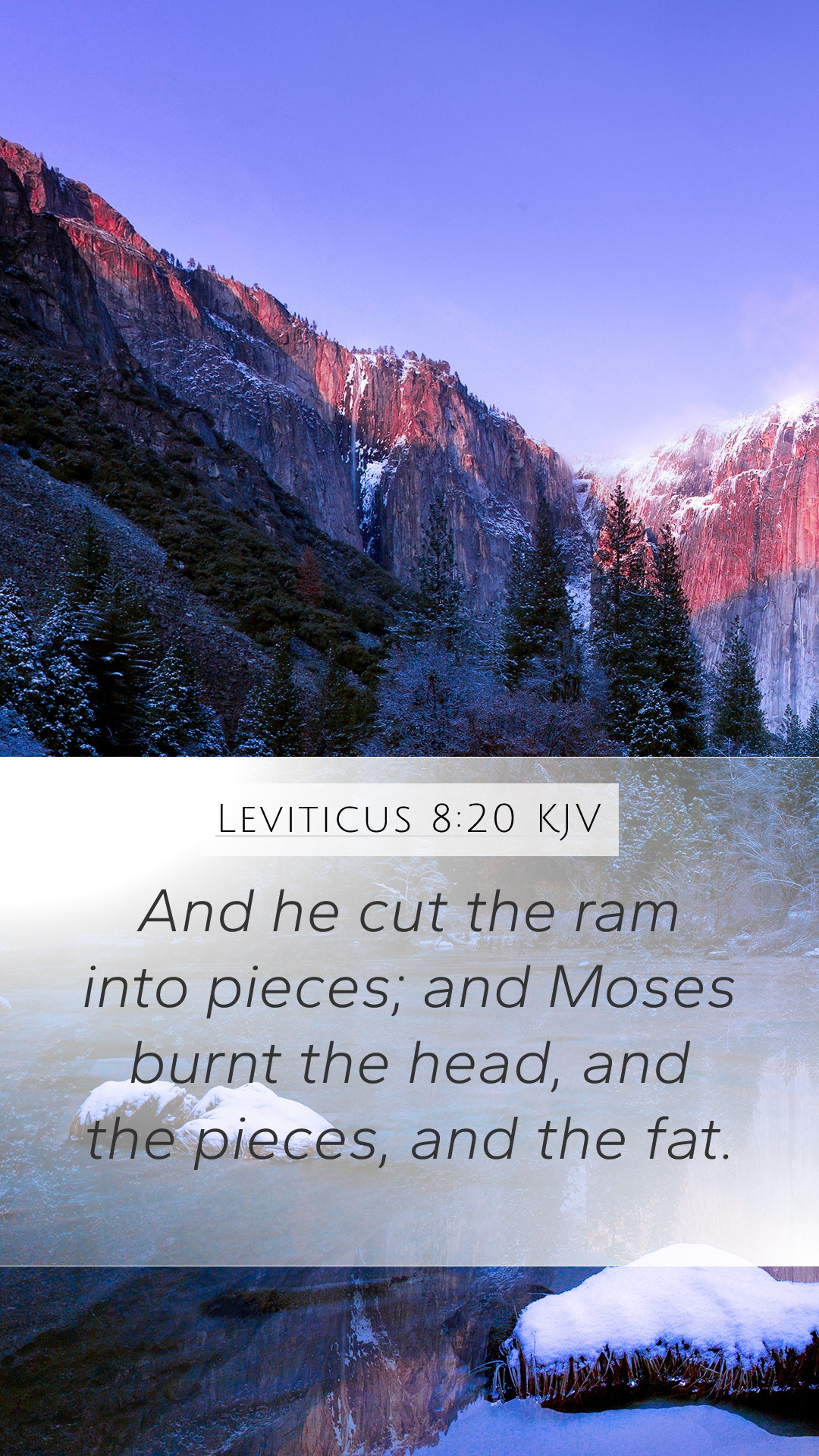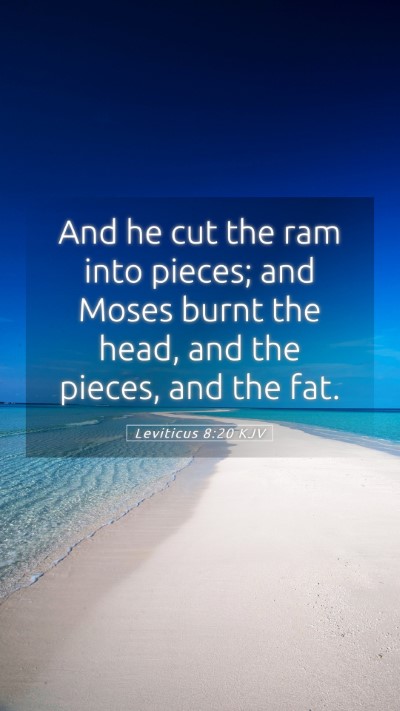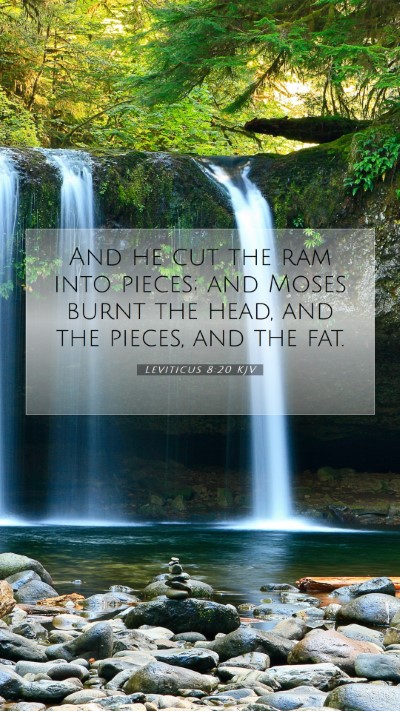Understanding Leviticus 8:20
Leviticus 8:20 is a significant verse explaining the process of offering sacrifices, particularly in the context of the consecration of Aaron and his sons as priests. This verse serves not only as a historical account but also as a reflection of biblical symbolism concerning sacrifice, atonement, and divine selection.
Verse Text
"And he cut the ram into pieces; and Moses burnt the head, and the pieces, and the fat." - Leviticus 8:20 (KJV)
Commentary Insights
- Matthew Henry's Commentary:
Henry emphasizes the meticulous nature of the sacrificial system, highlighting how each element of the offering had specific significance. The cutting of the ram into pieces symbolizes God's judgment on sin, while the act of burning demonstrates the total dedication required in worship.
- Albert Barnes' Notes:
Barnes discusses the order and ritual involved in this act, asserting that it was crucial for the establishment of the priesthood. The emphasis on burning the fat illustrates the idea of offering the best to God, which was common in sacrificial practices.
- Adam Clarke's Commentary:
Clarke points out that the ram symbolizes the atonement and reflects the seriousness of the sins of the people that the priests would be addressing. He also notes that this act validates the priests' role in mediating between God and the Israelites.
Deeper Significance
This verse not only serves as a narrative about the consecration of priests but also lays the groundwork for understanding how sacrificial rites were integral to the relational dynamics between God and His people. The actions taken here foreshadow the ultimate sacrifice of Jesus Christ, who would fulfill the necessity for such offerings through His own atonement.
Bible Study Applications
Understanding Leviticus 8:20 can enrich Bible study groups and individuals engaging in online Bible study. It prompts discussions about the Old Testament sacrificial system, its importance in the covenant community, and how it informs New Testament teachings and the significance of Jesus's sacrifice.
Related Bible Cross References
- Exodus 29:10-14: This passage further describes the consecration of priests and the sacrificial offerings required.
- Leviticus 1:4: Here we find the principle of sacrifices atoning for sin, establishing the continued importance of sacrificial offerings.
- Hebrews 9:12: The New Testament connection illustrates how Christ entered the Most Holy Place once for all by His own blood, thus securing eternal redemption.
Conclusion
In summary, Leviticus 8:20 serves as a vital verse that lays the foundation for understanding the priestly duties and sacrificial system in the Old Testament. By exploring the insights offered by several public domain commentaries, one can attain a comprehensive grasp of its implications and applications. This approach fosters a richer understanding of Scripture that can be utilized in various Bible study settings, aiding individuals and groups in their journeys to deeper faith and comprehension.


